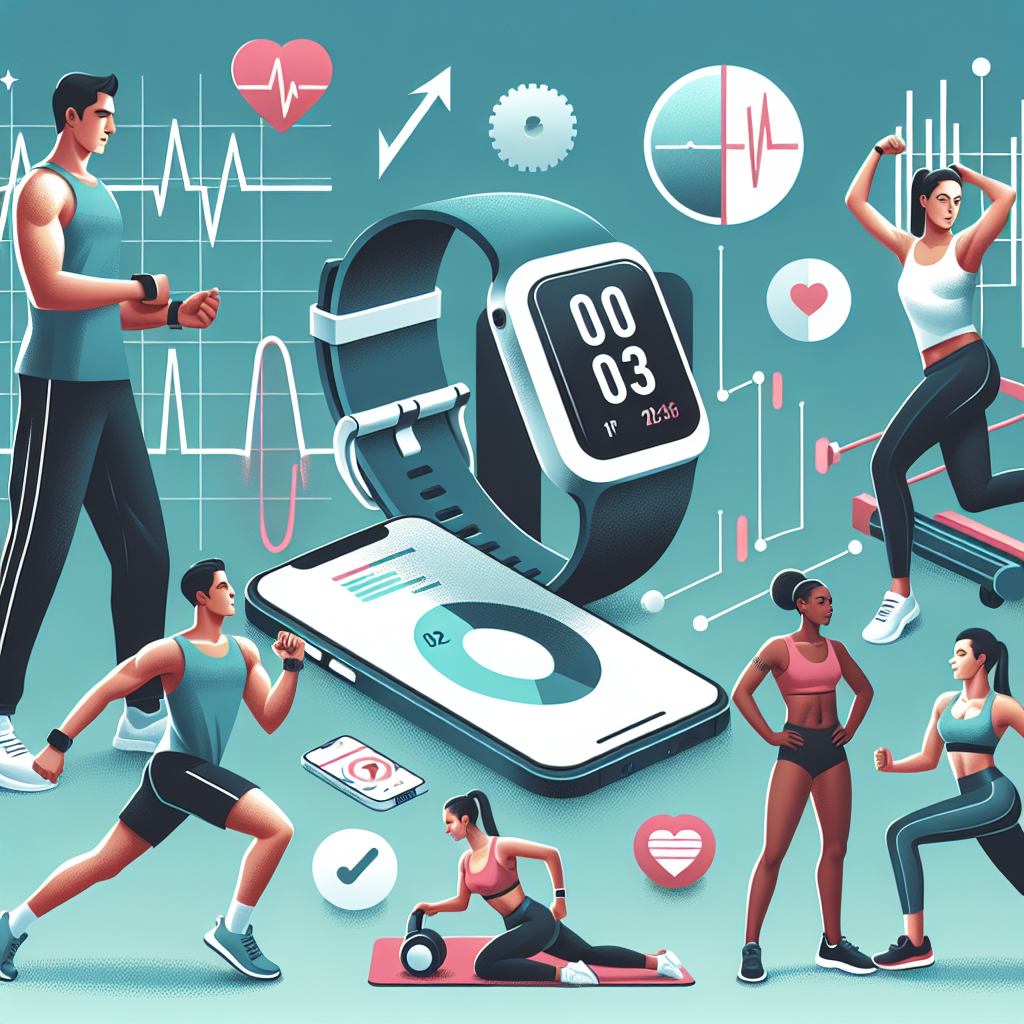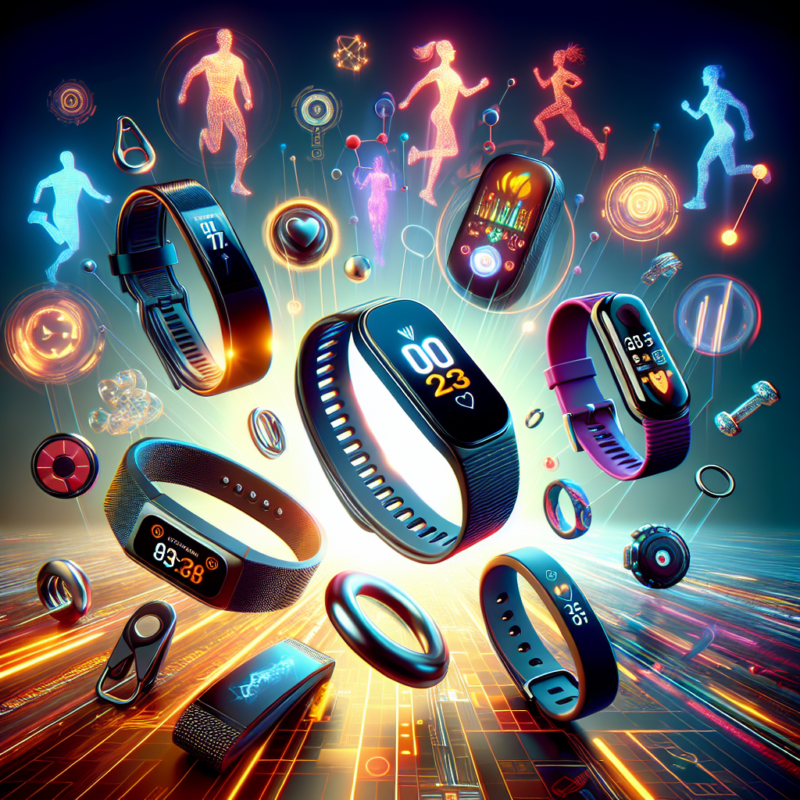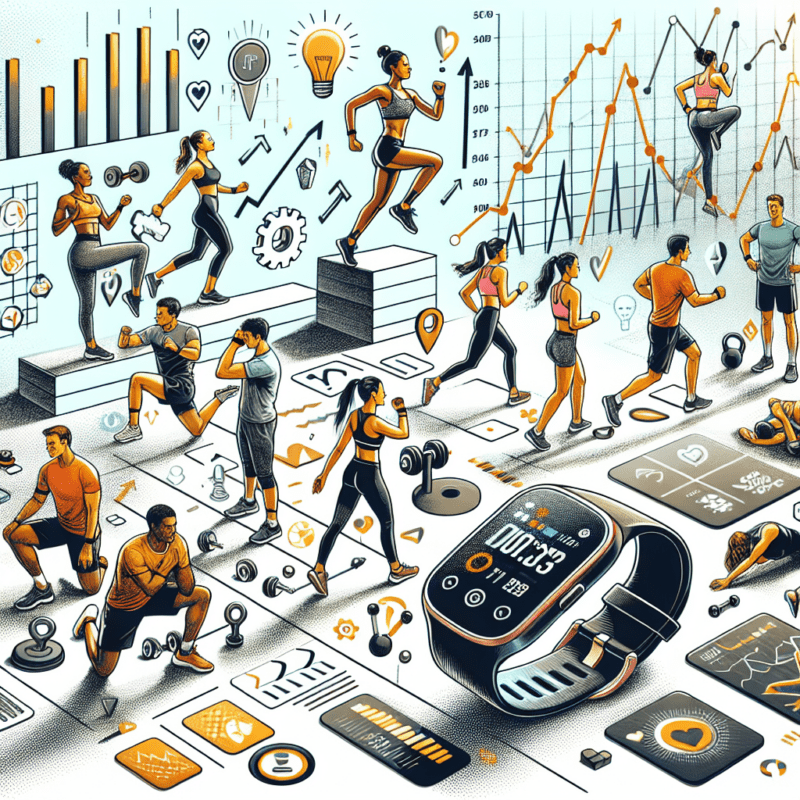Maximize Your Health Journey: The Advantages of Fitness Tracking Devices

In today’s health-conscious society, fitness tracking devices have transformed how individuals approach their wellbeing. These powerful tools offer more than just step count data; they provide a comprehensive overview of your fitness journey, helping you track progress, stay motivated, and achieve your health goals. This article will delve into the multifaceted benefits of using fitness tracking devices and how they can significantly transform your health journey.
Enhanced Motivation and Accountability
One of the primary benefits of using fitness tracking devices is the boost in motivation and accountability they provide. By quantifying your daily activities and progress, these devices empower individuals to set achievable goals. For instance, seeing tangible data such as the number of steps taken or calories burned can motivate you to push through physical challenges and strive to meet or exceed your personal targets. Studies have shown that individuals who set specific goals are more likely to achieve them, and fitness trackers facilitate this process by allowing users to visualize their progress in real-time.
Moreover, many fitness tracking devices come equipped with community features that enable users to share their achievements and challenges with friends, family, or online communities. This social aspect can significantly enhance accountability, where the desire to update your progress may encourage you to maintain your fitness regimen. By being part of a community, users often experience additional support and motivation, leading to a higher likelihood of sustaining a long-term commitment to health and fitness.
Data-Driven Insights for Personalized Fitness
Fitness tracking devices provide invaluable data that can be utilized to create personalized fitness plans tailored to individual needs and objectives. With features such as heart rate monitoring, sleep tracking, and activity analysis, users can gain insights into their physical state, which can drive decision-making in their fitness approaches. For example, if your data indicates that you’re not getting enough sleep, you could realign your routines to ensure improved recovery which is vital for an effective workout regimen.
Furthermore, these devices can track various metrics over time, enabling long-term analysis of your health trends. Understanding how your body responds to different activities or diets can lead to more informed choices. For example, if a particular type of exercise consistently yields improvements in your heart rate or overall mood, you may decide to incorporate it more regularly into your routine, optimizing your fitness results.
Integration of Health Metrics
Fitness tracking devices are equipped with advanced technology that integrates various health metrics into a single platform, enabling a more holistic approach to health management. Many devices allow for tracking not just physical activity but also nutrition, hydration, sleep quality, and heart health. Some wearables can monitor blood oxygen levels and stress indicators, providing deeper insights into your overall well-being. This multifaceted data collection allows for a more comprehensive evaluation of lifestyle impacts on health.
Moreover, this integration serves to illustrate how different aspects of a person’s lifestyle interconnect. For instance, poor sleep may adversely affect your performance during workouts, and nutrition imbalances may lead to lower energy and fatigue. By understanding these connections, users can make more educated decisions to improve their overall health, engage in corrective actions, and witness the synergy involved in an integrated health approach.
Improved Health Awareness and Education
Using fitness tracking devices fosters improved health awareness and education among users. As individuals continually interact with their health metrics, they become more informed about their personal health journey. This self-awareness can lead to discovering unhealthy habits, such as sedentary behavior, which can be prompts to change routines effectively. For example, regular reminders from the device to move around or drink water can cultivate healthy habits that become second nature over time.
Additionally, educational features available in many fitness trackers can help users learn about optimal workouts, recovery practices, and nutritional guidance based on their activity levels. Many devices offer personalized tips and feedback based on performance data, facilitating a more educated approach to fitness. The more informed you are about your body and its needs, the better equipped you will be to make the necessary adjustments to optimize your health and achieve your fitness objectives.
Enhanced Recovery Through Smart Tracking
One often-overlooked aspect of fitness tracking devices is their role in enhancing recovery. Recovery is an essential component of any fitness journey, as it influences performance levels and reduces injury risk. Advanced fitness trackers can monitor heart rate variability and sleep stages, offering insights into how well you are recovering after workouts. Understanding your recovery patterns empowers you to adjust your workout intensity, allowing for adequate rest when your body needs it.
Furthermore, smart recovery features may be available on various devices, suggesting active recovery days or specific stretches and yoga routines. The importance of prioritizing recovery cannot be overstated, particularly for high-intensity workouts where muscles must repair to promote growth and prevent injuries. By utilizing these features, individuals can enhance their overall fitness outcomes and ensure sustainable health by avoiding overtraining.
Conclusion
In conclusion, fitness tracking devices offer a plethora of benefits that can transform your health journey. From delivering enhanced motivation and accountability to providing data-driven insights and integration of various health metrics, these devices are multifunctional tools that promote a more effective and informed approach to fitness. They raise awareness and education about personal health, foster smart recovery strategies, and facilitate personalized fitness journeys that adapt to individual lifestyles. By leveraging the capabilities of fitness trackers, anyone can embark on a transformative journey toward better health.
FAQs
What types of fitness tracking devices are available?
There are various types of fitness trackers available in the market, including wristbands, smartwatches, smartphone apps, and specialized equipment like heart rate monitors. Each device caters to different needs and preferences, ensuring there’s an option for everyone.
How do fitness trackers measure activity?
Most fitness trackers use accelerometers and gyroscopes to detect movement and displacement, calculating metrics such as steps taken, distance traveled, and calories burned based on individual user data and activity levels.
Do I need to connect my fitness tracker to my smartphone?
While many fitness trackers can function independently, connecting them to your smartphone often unlocks additional features, allows for data syncing, and provides access to community engagement and personalized insights offered by apps.
Are fitness trackers suitable for all fitness levels?
Yes, fitness trackers are designed to suit all fitness levels, from beginners to advanced athletes. They can help set personal goals and monitor progress regardless of baseline fitness capabilities.
Can fitness trackers help with weight loss?
By tracking physical activity, calorie intake, and other health metrics, fitness trackers can aid in weight loss efforts. They help by promoting awareness of calorie consumption versus expenditure, assisting users in creating a balanced approach to diet and exercise.


